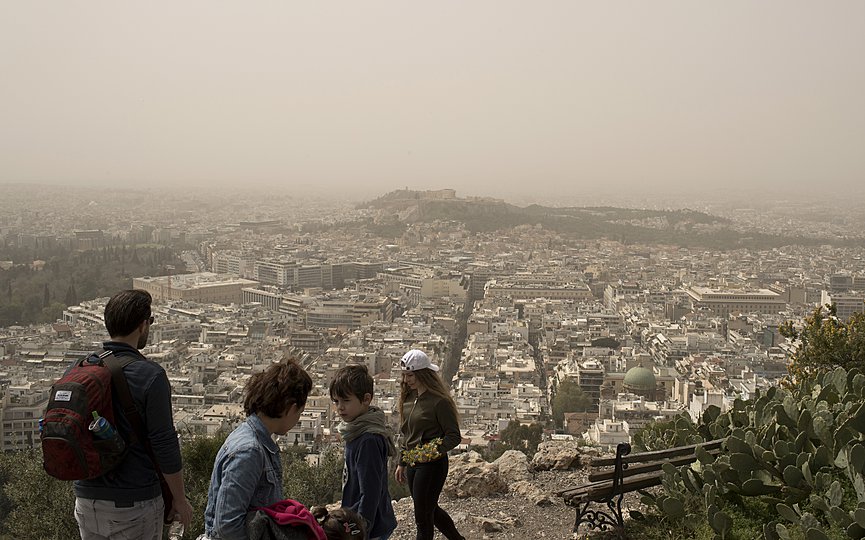General News
Meropi Kyriacou Honored as TNH Educator of the Year
NEW YORK – Meropi Kyriacou, the new Principal of The Cathedral School in Manhattan, was honored as The National Herald’s Educator of the Year.

Clouds of dust carried by the winds from Libya and other parts of North Africa are expected to blanket most parts of Greece throughout the week, reaching their peak concentration on Orthodox Holy Thursday and Good Friday. The high dust concentrations are expected to start abating from the afternoon on Holy Saturday.
Worst affected, according to the National Observatory of Athens weather service meteo, will be the regions of Epirus, West Central Greece, the Peloponnese and Crete.
The dust clouds are a phenomenon that has traversed the Mediterranean and on occasions reached as far as the United Kingdom and Scandinavia. Based on calculations carried out by meteo scientists, the source is traced back to Libya and areas dominated by clay soil and fine sand.
Strong winds blowing in Libya in the last few days, combined with low pressures in the Western Mediterranean and high pressure in the Eastern Mediterranean raises large quantities of dust into the air and transports it toward Greece and other European countries. This causes reduced visibility, especially in southern Greece, and muddy rain.
Temperatures in Greece, meanwhile, have exceeded 25 C with the highest temperatures recorded in the Peloponnese. According to meteo weather stations, the highest maximum temperatures on Holy Tuesday were in Kyparissia (25.9C), Amaliada (25.1C), Zacharo in Ilia (24.8C), Vartholomio (24.7C) and Igoumenitsa (24.7C).
NEW YORK – Meropi Kyriacou, the new Principal of The Cathedral School in Manhattan, was honored as The National Herald’s Educator of the Year.

KYIV, Ukraine (AP) — Three Russian missiles slammed into a downtown area of the northern Ukrainian city of Chernihiv on Wednesday, hitting an eight-floor apartment building and killing at least 13 people, authorities said.
NEW YORK (AP) — Sen. Bob Menendez may seek exoneration at his May bribery trial by blaming his wife, saying she kept him in the dark about anything that could be illegal about her dealings with New Jersey businessmen, according to court papers unsealed Tuesday.
It was a close brush with death but a 40-year-old British tourist bitten by a deadly viper while at a yoga retreat on Cyprus is recovering after getting swift hospitalization to counteract the venom.
ATHENS - After Israel’s Iron Dome air defense system - with help from French, American and British fighter jet pilots - knocked Iranian missiles and drones from the skies during an attack, Greece is looking to create a similar protection method.
KYIV, Ukraine (AP) — Three Russian missiles slammed into a downtown area of the northern Ukrainian city of Chernihiv on Wednesday, hitting an eight-floor apartment building and killing at least 13 people, authorities said.